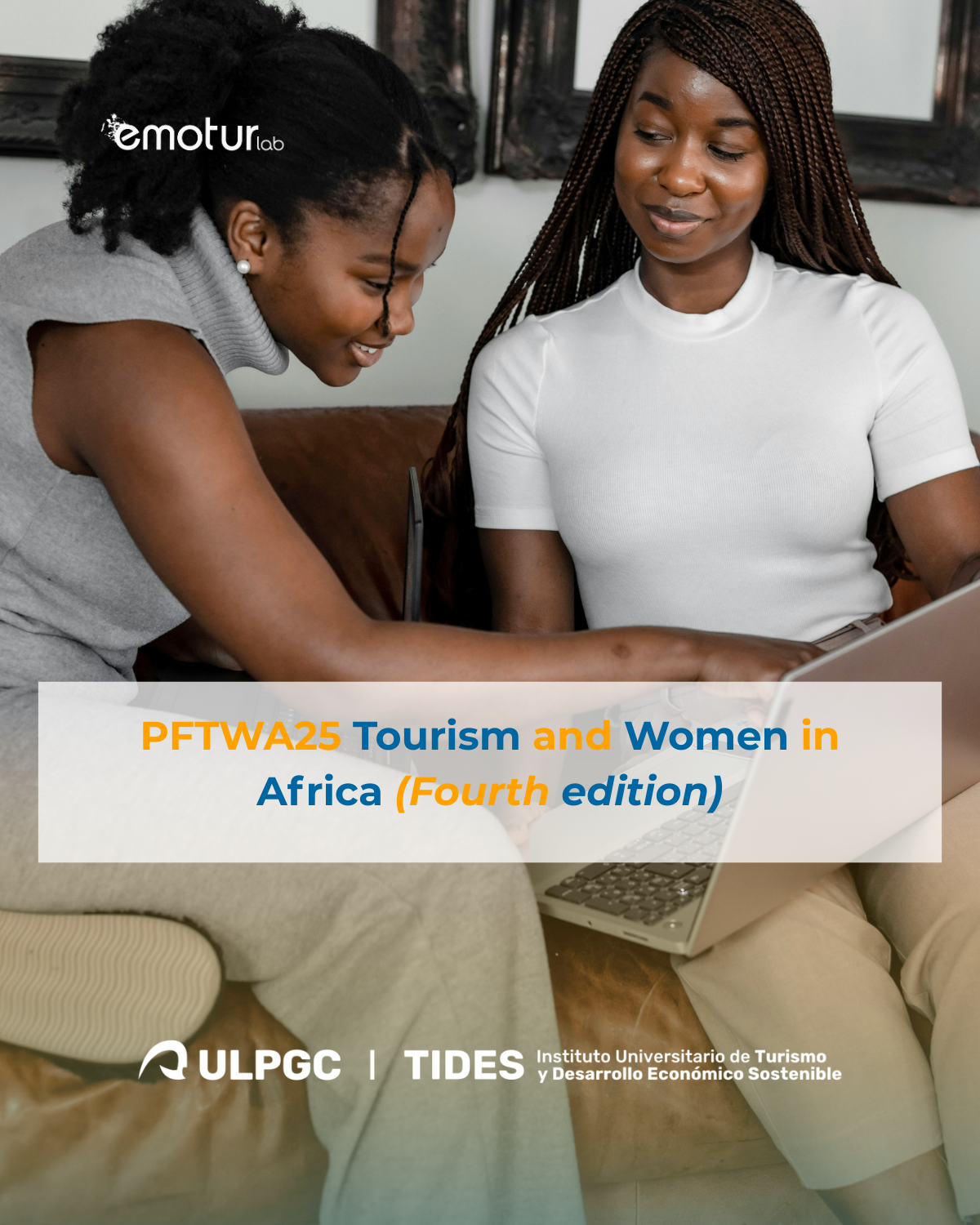The Tourism and Women in Africa course, led by the UNESCO Chair in Tourism and Sustainable Economic Development (TIDES) in collaboration with the United Nations Development Programme (UNDP), has established itself as a transformative initiative in the field of sustainable tourism in Africa. This program, aimed at young African women with university education, seeks to strengthen their leadership in creating innovative and sustainable tourism projects.
Course Objectives
-
Empower African women: Provide them with the tools and knowledge to lead tourism development in their communities.
-
Promote sustainability: Integrate sustainable practices into the planning and management of tourism projects.
-
Apply technological innovation: Incorporate neuromarketing and digitalization techniques in tourism promotion and management.
Program Content
The course includes several modules combining theory and practice:
-
Tourism and sustainable economic development: Introduction to the tourism system and business opportunities within the context of sustainability.
-
Tourism and the Sustainable Development Goals (SDGs): Special focus on the role of women in tourism.
-
Tourism market analysis: Study of trends and opportunities in the sector.
-
Creation and development of tourism experiences: Design of innovative tourism products.
-
Promotion of new tourism projects: Use of digitalization and neuromarketing to enhance promotional effectiveness.
-
Tourism project development: Practical application of knowledge through the creation of a real project.
Methodology and Format
-
Format: Online, through ULPGC’s virtual platform.
-
Duration: 60 hours.
-
Language: English.
Collaborators and Institutional Support
The course is supported by prestigious institutions:
-
University of Las Palmas de Gran Canaria (ULPGC): Through the TIDES Institute, specializing in research and training in sustainable tourism.
-
United Nations Development Programme (UNDP): Support in program implementation and dissemination.
-
Women for Africa Foundation: Collaboration in course coordination and promotion.
-
Directorate General for Economic Affairs with Africa, Government of the Canary Islands: Funding and logistical support.
Impact and Results
The course has trained over a dozen African women, who have developed sustainable tourism projects applying the knowledge acquired. Additionally, it has fostered collaboration networks between participants and international experts, strengthening the business and social fabric within Africa’s tourism sector.
